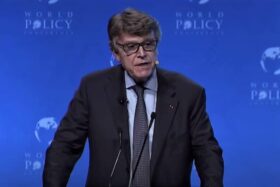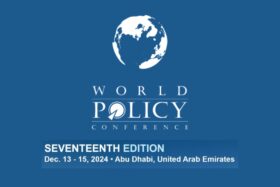Is the era of comprehensive global trade agreements under the auspices of the World Trade Organization (WTO) essentially dead? If so, what role remains for the WTO? Should we see the growing trend toward bilateral, regional, and plurilateral (e.g., Trans-Pacific Partnership) free trade agreements as benign and even valuable, or do these developments pose downsides, risking the diversion and fragmentation of global trade? At a global level, what sectors (e.g., investment, public procurement) might be most ripe for narrower multilateral agreements, at least among a core set of countries?
Panelists:
Barry Desker, Dean, S. Rajaratnam School of International Studies (Singapore)
Thierry de Montbrial, Founder and President, French Institute of International Relations (France)
Jaime Zabludovsky, President, Mexican Council on Foreign Relations (Mexico)
Chair: Richard N. Haass, President, Council on Foreign Relations (United States)
The defining foreign policy challenges of the twenty-first century are global in nature. To help direct high-level international attention and effective policy responses to these threats and opportunities, the Council on Foreign Relations (CFR) has created the Council of Councils (CoC). The CoC is composed of twenty-nine major policy institutes from some of the world’s most influential countries. It is designed to facilitate candid, not-for-attribution dialogue and consensus-building among influential opinion leaders from both established and emerging nations, with the ultimate purpose of injecting the conclusions of its deliberations into high-level foreign policy circles in members’ countries.



